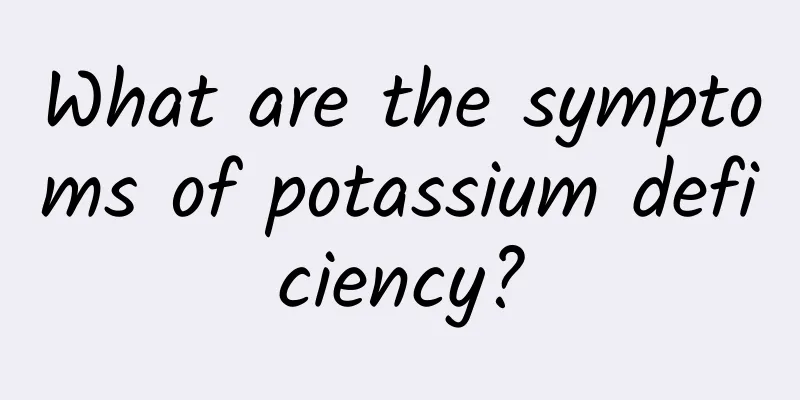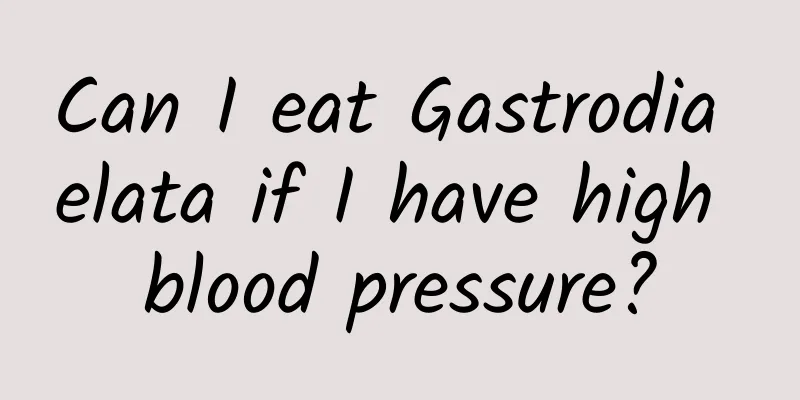What are the symptoms of potassium deficiency?

|
When it comes to potassium, everyone may feel unfamiliar with it and it is easy to think of potassium fertilizer. In fact, not only plants need potassium, but our bodies also need potassium, because it is an important element in our body that cannot be ignored. Therefore, we must always pay attention to our bodies and be on guard against any problems in the body at every moment. So what are the symptoms of potassium deficiency? ① Weak limbs, flaccid paralysis, slow or absent tendon reflexes, and in severe cases, breathing difficulties. ② Apathy, dull eyes, drowsiness, and confusion. ③Nausea, vomiting, abdominal distension, intestinal paralysis. ④Palpitations and arrhythmia. Potassium is a substance with a large amount in the body. Most of it exists inside each cell and coordinates with the internal organs outside the cell. To maintain the acid-base balance of blood and body fluids, as well as to maintain the stability of water balance and osmotic pressure in the body. Potassium is an essential nutrient for human growth. It accounts for 5% of the body's inorganic salts and is very important for maintaining a healthy nervous system and regulating heart rhythm. Other potassium is stored in nerves, blood cells and muscles. The most important function of sodium, potassium and chlorine is to maintain the balance of water and acidity and alkalinity in the body. Be sure to supplement the right amount of potassium, meat, milk, cheese Among fresh fruits and vegetables, oranges, raisins, potatoes, bananas, and winter melon, bananas have the highest potassium content. Recommended potassium intake: Potassium intake should not be excessive, otherwise it will cause sodium loss and deficiency. People who take antibiotics or diuretics for a long time, or those who consume too much salt, must consume more potassium. The daily intake of potassium for adults is 2000 mg. The minimum daily requirement of potassium for infants and young children is 90 mg. Potassium is abundant in dairy products, fruits, vegetables, lean meat, offal, bananas and raisins. The key to disease prevention is prevention. Our body is like a big system. If there is a problem in one place, a series of problems will arise. Therefore, we need to start with prevention. Although potassium deficiency seems to be a small problem, when it is severe, it can lead to arrhythmia, respiratory muscle paralysis and death. In addition, excessive intake of potassium should not be taken, as it can lead to metabolic acidosis. Especially patients with kidney disease. |
<<: Which acupoints should I massage for stomachache?
>>: The effect of honeysuckle in clearing heat
Recommend
How to treat gout
Gout is a chronic, painful disease. We all know t...
polio
There are many types of diseases. When treating a...
Sinus arrhythmia
When it comes to heart disease, many people feel ...
What to do with severe insomnia
Generally speaking, the causes of insomnia are mo...
How to remove snake skin from legs
The appearance of snake skin on the legs is somet...
From nephritis to uremia, see the stages of kidney disease
For patients with kidney disease, the harm is rel...
Anterior urethral stricture surgery
Anterior urethral stenosis is caused by infection...
How to treat allergic cough in traditional Chinese medicine
Allergic cough is a very common phenomenon. Patie...
Treatment methods for cervical spondylosis to help you recover as soon as possible
Cervical spondylosis is also known as bone spurs....
What should I do if my child has a cold and his throat is hoarse?
I believe that everyone regards children at home ...
Is castor oil toxic?
Castor beans are poisonous, and the toxicity is v...
The efficacy and function of Uncaria rhynchophylla
Uncaria tea is a kind of traditional Chinese medi...
Is Caesarean section painful?
Pregnant women often consider one question during...
The efficacy and function of silkworm pupae
Silkworm pupae have high nutritional value and ha...
Is cola and ginger useful for treating colds?
Is it useful to boil ginger with cola to treat co...









